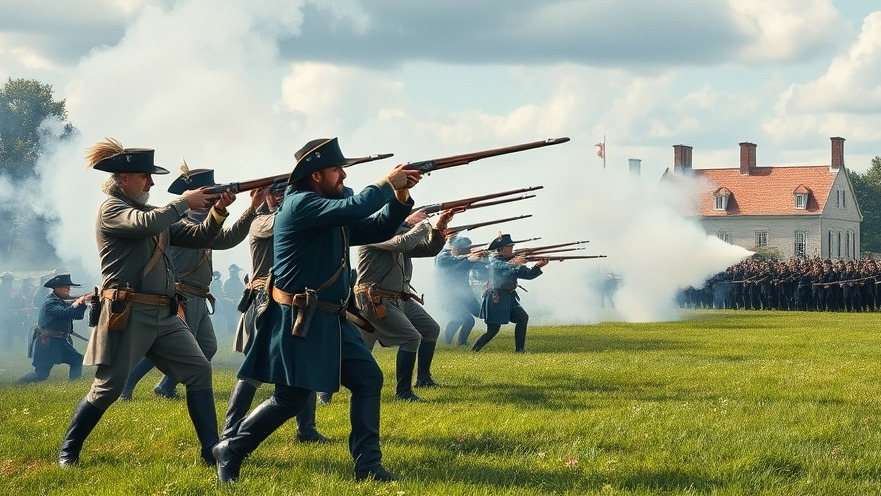
A Pivotal Moment: The Shot Heard 'Round the World
The phrase "the shot heard 'round the world" signifies a critical turning point in American history, as it heralded the start of the Revolutionary War. On April 19, 1775, the first shots were fired at Lexington, Massachusetts, igniting a conflict that would ultimately lead to America's independence. A myriad of stories, theories, and claims surround the poignant incident, leading many to ask the age-old question: who fired the first shot?
Historical Context: Tensions Mounting in Colonial America
The American colonies were rife with tension as the 1770s unfolded. British governance faced increasing criticism with rising taxes and declining freedoms, which fueled resentment among colonists. Events such as the Boston Massacre in 1770 had already placed the colonists and the British on a collision course, paving the way for a war that would ultimately change the course of history.
Who Fired First? Debating the Narrative
The question of who fired the first shot at Lexington remains steeped in controversy. Some historians attribute the initial shot to a British soldier, while other narratives suggest that it was a colonial militiaman who instigated the exchange. This dispute illustrates the complexities of historical interpretation and the role individual narratives play in shaping national identity.
Social Relevance: Why This Story Matters Today
This historical event is not merely an isolated incident; it resonates significantly with contemporary discussions around civil rights and authority. The struggle against perceived tyranny is familiar to modern audiences, as various movements continue to advocate for rights they believe are encroached upon. Thus, understanding the origins of such conflicts can provide insight into ongoing dialogues in American society.
Counterarguments: Diverse Perspectives on the Revolution
While many celebrate the revolution as a fight for freedom, others argue it came at the cost of the rights of certain groups, including Native Americans and enslaved Africans. The Revolution's principles of liberty and justice were not uniformly applied, raising questions about equality and whose freedom was truly protected. Engaging with counterarguments is essential to cultivate a nuanced understanding of this pivotal moment.
Future Insights: Lessons for Contemporary Movements
The legacy of the shot fired at Lexington extends beyond the battlefield and into the landscape of modern activism. Understanding the importance of civil disobedience in the face of oppressive governance can provide essential lessons for present-day movements. Leaders and grassroots activists can draw parallels to maintain momentum in their struggles for justice.
Conclusion: The Importance of Historical Reflection
The shot heard 'round the world is more than just a historical phrase; it represents the essence of America's quest for independence and the ongoing fight for justice and equality. Whether we view it as a starting point for freedom or a reminder of the complexities of liberation, this moment invites us to reflect on how far we've come and how far we still have to go in our quest for a more inclusive society.
This intriguing history merits further exploration and analysis, as understanding our past will illuminate the path forward. Engaging with this narrative allows us, as a society, to reflect on the pivotal moments that have shaped our national identity.
 Add Element
Add Element  Add Row
Add Row 



 Add Row
Add Row  Add
Add 


Write A Comment